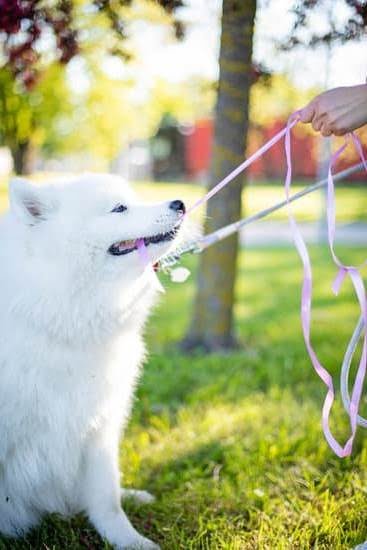What age should dogs start obedience training? Obedience training is a crucial aspect of ensuring a well-behaved and balanced canine companion. It sets the foundation for a strong relationship between you and your furry friend, while also ensuring their safety and the safety of those around them.
In this article, we will explore the various stages of a dog’s development and how it affects their ability to learn, as well as the importance of early socialization in shaping a well-behaved dog. We will also discuss the different stages of obedience training, from puppyhood to adulthood, and provide tips for successful training at any age.
Understanding the developmental stages of a dog is essential in determining when to start obedience training. The age at which a dog begins training can significantly impact their ability to learn and retain commands.
Early socialization plays a vital role in molding a dog’s behavior and temperament, making it crucial to start obedience training at the right time. Whether you have a new puppy or an older dog, it’s important to understand how their developmental stage can affect their learning process.
Puppy obedience training sets the groundwork for good behavior and habits that can last a lifetime. However, adolescent dogs may present challenges due to hormonal changes and increased independence. Even adult dogs can benefit from obedience training, proving that it’s never too late to teach an old dog new tricks. Professional trainers also play a significant role in providing guidance and expertise in shaping your dog’s behavior through proper obedience training techniques.
Understanding the Developmental Stages of Dogs
Dogs, like humans, go through different developmental stages as they grow. These stages can have a significant impact on their ability to learn and retain new information. Understanding how age affects learning in dogs is crucial to determining the best time to start obedience training.
Early Development: The Puppy Stage
Puppies go through a critical socialization period between 3 and 14 weeks of age, during which they are most open to new experiences and learning. This makes it an ideal time to start introducing basic obedience commands and behaviors. It’s important to keep training sessions short and positive during this stage, as puppies have short attention spans and can easily become overwhelmed.
Adolescence: Dealing With Challenges
As dogs enter their adolescent stage, typically around 6 to 18 months of age, they may become more independent and test boundaries. This can make obedience training more challenging, but consistency and patience are key. It’s important for owners to understand that this stage is temporary and to continue reinforcing basic obedience skills while also addressing any behavioral issues that may arise.
Adult Dogs: It’s Never Too Late
While it’s generally easier to teach puppies and young dogs new behaviors, adult dogs can still benefit from obedience training. Whether you have adopted an older dog or simply never had the opportunity to train your adult dog, it’s never too late to start. With patience, positive reinforcement, and the right approach, adult dogs can learn new commands and behaviors effectively.
Understanding how age affects learning in dogs is essential for setting realistic expectations when it comes to obedience training. By recognizing the specific needs of dogs at different developmental stages, owners can provide appropriate training that sets their furry companions up for success throughout their lives.
Early Socialization
What Is Early Socialization?
Early socialization is a critical component of raising a well-behaved dog. It involves exposing your puppy to a wide variety of people, animals, environments, and experiences during their crucial developmental period. This typically occurs between the ages of 3 weeks to 14 weeks. During this time, puppies are more open to new experiences and are forming important social skills that will stick with them for life.
The Benefits of Early Socialization
Proper early socialization can prevent behavior problems such as aggression, fearfulness, and anxiety in adulthood. It also helps dogs become more adaptable and better able to handle new situations throughout their lives. Additionally, well-socialized dogs tend to be more relaxed, friendly, and confident in various environments.
How to Socialize Your Puppy
Socializing your puppy involves exposing them to different people (of all ages), other animals (dogs, cats, etc.), objects (such as bicycles or umbrellas), sounds (fireworks or loud traffic), and different environments (parks, stores, sidewalks). It’s important to ensure that these experiences are positive by using treats and praise to reinforce good behavior. Gradually exposing your puppy to these new experiences in a safe and controlled manner is key to successful socialization.
Puppy Obedience Training
Puppies are like sponges, ready to absorb all the information they can get from their environment. This is why puppy obedience training is crucial in shaping a dog’s behavior for the rest of their lives. Starting off on the right paw means laying down a strong foundation for future learning and ensuring that your puppy grows into a well-behaved adult dog.
The ideal age to start obedience training for puppies is when they are about 7-8 weeks old. At this stage, they are more receptive to new experiences and have a shorter attention span, making it the perfect time to introduce them to basic commands such as sit, stay, and come. It’s important to keep training sessions short and fun, incorporating plenty of positive reinforcement in the form of treats and praise.
Consistency is key when it comes to puppy obedience training. This includes not only regular practice of commands but also establishing consistent rules and boundaries at home. This will help them understand what is expected of them as they grow older.
Additionally, early socialization with other dogs and people is essential during this stage to prevent fear or aggression issues later on. By starting off on the right paw with proper obedience training, you can set your puppy up for a lifetime of good behavior and happiness.
Adolescent Dog Training
Adolescent dogs, typically between the ages of six months to two years old, often go through a challenging stage in their development. During this time, they may exhibit rebellious behavior and struggle with hormonal changes, making obedience training more difficult. The key to effectively training an adolescent dog lies in understanding these challenges and adjusting your training methods accordingly.
One of the most common challenges during adolescent dog training is the tendency for dogs to become more independent and stubborn. This is often a result of hormonal changes as well as the natural progression of their development.
It is important for dog owners to remain patient and consistent during this stage, as it is a critical period for shaping their behavior and habits. Positive reinforcement techniques such as rewards-based training can be particularly effective during this time, as they encourage good behavior rather than simply correcting bad behavior.
In addition to independence and stubbornness, adolescent dogs may also test boundaries and engage in behaviors such as chewing, digging, and excessive barking. Addressing these issues through appropriate obedience training techniques can help establish healthy boundaries and prevent these behaviors from becoming long-term habits. Consistent exercise, mental stimulation, and socialization are also important factors in managing a dog’s energy levels and overall well-being during this stage of their development.
| Adolescent Dog Training Challenges | Effective Training Techniques |
|---|---|
| Independence & Stubbornness | Positive reinforcement techniques such as rewards-based training |
| Testing Boundaries & Unwanted Behaviors | Consistent exercise, mental stimulation, & socialization |
Adult Dog Obedience Training
When it comes to obedience training, many dog owners may wonder if it’s too late to start training their adult dog. The good news is that it’s never too late to teach an old dog new tricks.
While puppies may be more easily moldable, adult dogs are still capable of learning and adapting to obedience training. In fact, adult dogs often have a better attention span and understanding of cause and effect, making them prime candidates for successful obedience training.
One important factor to consider when starting obedience training with an adult dog is their previous experiences and behavior. Some adult dogs may have developed bad habits or behavioral issues over time, which can present challenges during training. It’s important for the owner to understand these challenges and be patient in addressing them through consistent and positive reinforcement.
In addition, it’s crucial for the owner to establish trust and respect with their adult dog before beginning obedience training. Building a strong bond through positive interactions, exercise, and quality time together will create a solid foundation for successful obedience training. With patience, consistency, and the right approach, adult dogs can excel in obedience training and develop into well-behaved companions.
The Role of Professional Trainers in Dog Obedience Training
Professional trainers play a crucial role in dog obedience training, providing expertise and guidance to ensure that dogs receive the best possible training. Whether it’s working with puppies, adolescent dogs, or adult dogs, professional trainers can offer valuable insights and techniques to help owners train their dogs effectively.
There are several benefits of enlisting the help of a professional trainer for dog obedience training:
- Expertise: Professional trainers have the knowledge and experience to understand dog behavior and learning patterns. They can tailor training methods based on the individual needs of each dog.
- Problem-solving: Trainers can address specific behavioral issues or challenges that owners may encounter during the training process. Their expertise allows them to identify underlying causes and provide effective solutions.
- Consistency: Professional trainers can guide owners on how to maintain consistency in their training approach, which is essential for successful obedience training.
When choosing a professional trainer for dog obedience training, it’s important to consider their qualifications and experience. Look for certifications from reputable organizations such as the Certification Council for Professional Dog Trainers (CCPDT) or the International Association of Canine Professionals (IACP). Additionally, seek recommendations from other dog owners or veterinarians to find a trainer who has a positive track record in successfully training dogs of all ages.
Ultimately, professional trainers play a vital role in helping owners set their dogs up for a lifetime of obedience and happiness. Their expertise and guidance can make a significant difference in the success of obedience training at any age.
Tips for Successful Obedience Training at Any Age
When it comes to obedience training for dogs, consistency and patience are key, regardless of the age of your furry companion. Here are some tips to ensure successful obedience training at any stage of your dog’s life:
- Use Positive Reinforcement: Reward good behavior with treats, praise, or playtime. This will motivate your dog to repeat the desired actions.
- Be Clear and Consistent: Use clear commands and consistent cues to avoid confusing your dog. It’s important for all members of the household to use the same commands and signals.
- Keep Training Sessions Short: Dogs have short attention spans, especially puppies. Keep training sessions brief and engaging to prevent boredom or frustration.
As mentioned in the previous sections, early socialization is crucial for a well-behaved dog. However, socialization should continue throughout a dog’s life to prevent behavior problems. Expose your dog to various environments, people, and other animals to help them feel comfortable in different situations.
Additionally, seek professional guidance if you’re having difficulty with obedience training. A certified dog trainer can provide valuable expertise and personalized strategies to address specific behavior challenges at any age.
Remember that successful obedience training is an ongoing process that requires patience, understanding, and positive reinforcement. By following these tips and being committed to your dog’s training, you can set them up for a lifetime of obedience and happiness.
Conclusion
In conclusion, it is clear that obedience training for dogs should start as early as possible in order to set them up for a lifetime of good behavior and happiness. Understanding the developmental stages of dogs and how age affects their ability to learn is crucial in determining the right time to begin training. Early socialization and puppy obedience training are essential for laying the foundation for a well-behaved adult dog.
As dogs enter their adolescent stage, they may pose more challenges due to hormonal changes and increased independence. However, with patience and consistent training, it is possible to overcome these obstacles and continue shaping their behavior. It’s important for dog owners to understand that it’s never too late to start obedience training, even with adult dogs. With the guidance of professional trainers, any dog can learn new tricks and behaviors at any age.
Ultimately, the goal of obedience training is not just about teaching commands, but about fostering a strong bond between the owner and their canine companion. By following the tips for successful obedience training at any age, dog owners can ensure that their furry friends are set up for a lifetime of obedience, happiness, and fulfillment. Remember, a well-trained dog is a happy dog.
Frequently Asked Questions
At What Age Should a Dog Be Obedient?
A dog should begin learning obedience from a young age, ideally as early as 8-16 weeks old. This is the time when they are most receptive to training and can start learning basic commands and behaviors. Consistent and patient training during this crucial developmental stage can set the foundation for a well-behaved adult dog.
At What Age Should a Puppy Be Fully Trained?
Puppies can be fully trained by the time they reach 6-12 months of age. At this point, they should have learned basic commands, potty training, and proper socialization skills. However, some breeds may take longer to mature mentally and physically, so it’s important to be patient and consistent in their training.
At What Age Is a Dog Not Trainable?
There isn’t a specific age at which a dog becomes untrainable, but generally speaking, older dogs can still learn new things with patience and perseverance. It may take more time and effort compared to training a younger dog, but with the right approach, older dogs can still pick up new commands and behaviors.
It’s important to consider the individual personality and history of each dog when determining their trainability.

Welcome to the blog! I am a professional dog trainer and have been working with dogs for many years. In this blog, I will be discussing various topics related to dog training, including tips, tricks, and advice. I hope you find this information helpful and informative. Thanks for reading!





